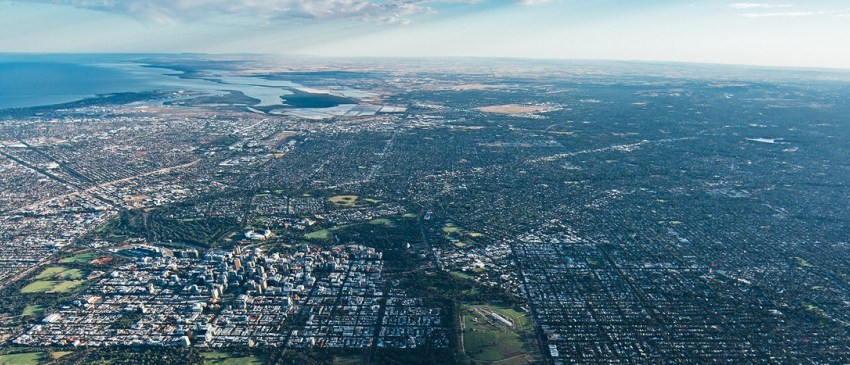Many among us are happy, even eager, to download a health tracker app, but who's going to monitor, track and lead our progress as a society as we come out the other side of this mess, asks Matt Clemow.
Are we going to step up after COVID-19?
SPECIAL REPORT: COVID-19 ADELAIDE
Every politician, policy boffin and industry group leader has spent most of the post-Whitlam era talking about the opportunity presented by a blank policy canvas, where traditional vested interests are swept away for a period to undertake significant, generational change.
Rebuilding the state’s economy post-Covid-19 is just that blank canvas. The question is whether anyone is ready to step up.
Matt Clemow is Director of Social Policy Solutions and Deputy Chair on the Committee for Adelaide
It’s only fair to start by acknowledging the Premier’s genuine leadership in guiding South Australians through the COVID-19 crisis and in showing faith in our citizens – allowing SA to maintain a 10-person limit on private gathering, as opposed to other states where a two–person limit was made.
It’s pleasing that the Premier trusted people, and heartening that people did, and continue to do the right thing.
Throughout this crisis the Government, and people like myself, have been reluctant to talk about ‘what next,’ when the critical question has been ‘what now?’
But the crisis seems to be abating, and while we shouldn’t and mustn’t take our foot off the brake, it’s natural to now start thinking of the second half of 2020 and beyond.
I don’t believe recovery means rebuild. Not this time. This isn’t fire, this isn’t flood. It’s not even earthquake. This is the most violent disruption to all of Western society since at least World War II.
The old political adage of never waste a crisis has never been more true or more important, and the immediate challenge for leaders (political, business and community) is to commit to this task and not retreat to our traditional trenches or long-held positions at the first signs of normality.
The reality is that you are given permission in a crisis to move policy levers or make changes that party politics would never allow. Think major surgery rather than a tune up.
A colleague said to me last week that the first step to fixing this unimaginable crisis is acknowledging that since World War II, Australian politics and its decision makers have largely tinkered around the edges and built a legacy system.
We have become very good at not fixing problems and creating add-ons, somewhat running protection for, ‘the way it has always been.’ That has made Australia one of the most successful countries in the modern world; however, what has worked in the past will not work in the future.
What was true is no longer the truth.
I believe this means historical policy assumptions/myths must be on the table as we begin to paint our blank canvas post-COVID-19. The Government has intervened in the private health system and healthcare hasn’t bombed. Childcare is free. What was true is no longer the truth.
With billions and billions of dollars in stimulus and concessions released by governments, why shouldn’t taxpayers have a significant stake in the recovery, with strategic assets purchased or accumulated and later used to drive government ambitions and replenish treasury coffers?
Similarly, how can we avoid a discussion about all tax rates and revenue measures when it’s our duty to have the debate and be honest about our objections or preferences.
I also believe there’s an argument, nationally, to genuinely target and achieve Government uplift around its investments – with the Commonwealth spending billions on the north/south corridor, there should not be winners without those taxpayer-created dividends being shared.
There are areas where the Government (Federal and State) is in a position to pick winners – like we have with the defence sector – and it should continue to.
Medical manufacturing, domestic tourism, clean agriculture and wide-scale remote (non-Eastern States) working are all other opportunities that should be seized. What the Government should not do is attempt to rebuild South Australia to what it was pre-COVID.
We should not be rebuilding to get to what we had, we should be reshaping to become what we could be. We should not be starting an open-ended review of white-bread options which will present the same old options.
On a brighter note, I’m fortunate enough to also hold the role of Deputy Chair of the Committee for Adelaide and we are working with our members on how we – Adelaide – position ourselves after this crisis and what we look like out of the ashes.
While there are a lot of things we don’t know about post-COVID-19 life, there are some clear things we do know:
- There are very few cities in the world (likely none) built within 760 hectares of parklands
- There will be enormous sovereign investment by the Australian Government and SA must clearly articulate to the Federal Cabinet our desires and advantages
- There will likely be, post-BREXIT, even larger UK investment into Australia and South Australia
- Traditional tax mechanisms or interstate rules are probably unlikely to exist in the short to near term
- SA’s two-decade-long position as international education as a top-tier export is most likely under threat
South Australia’s most important choice – and the imperative response of its leaders – is how we paint our new future, and rebirth a city and state more resilient, prosperous and sustainable than its pre-COVID version.




